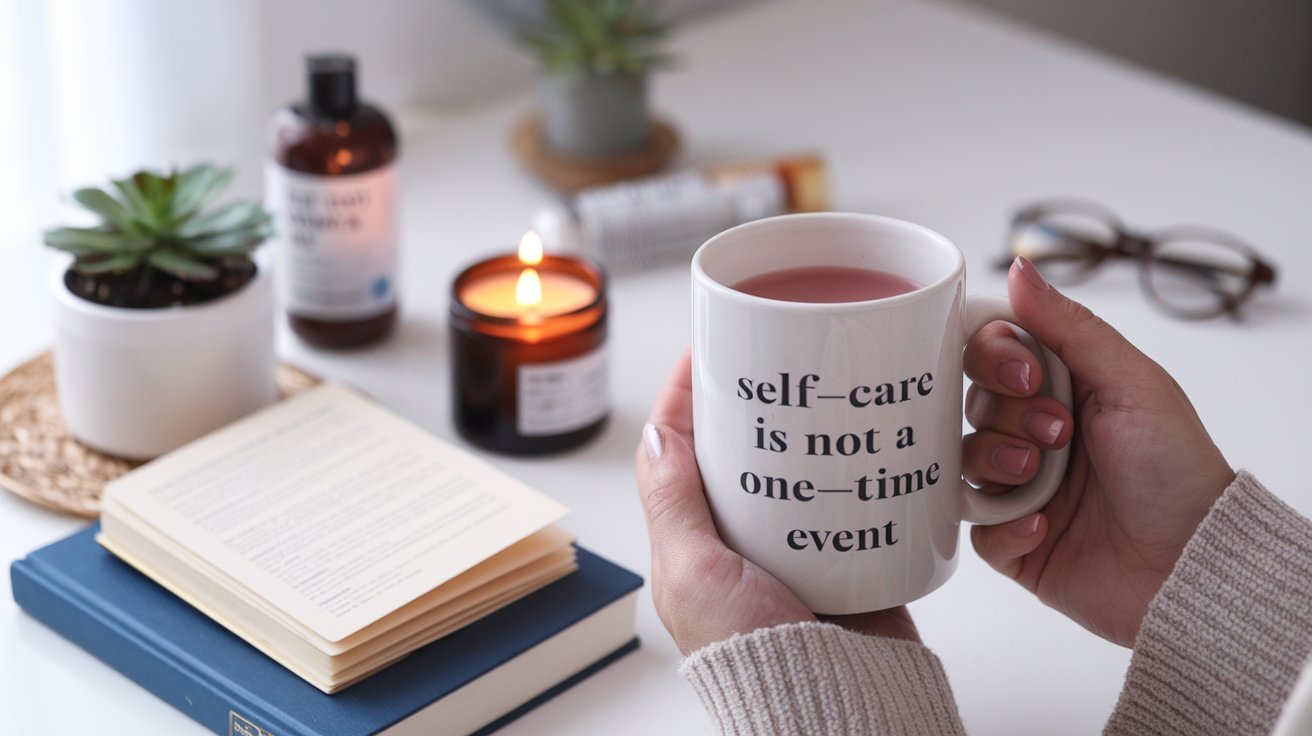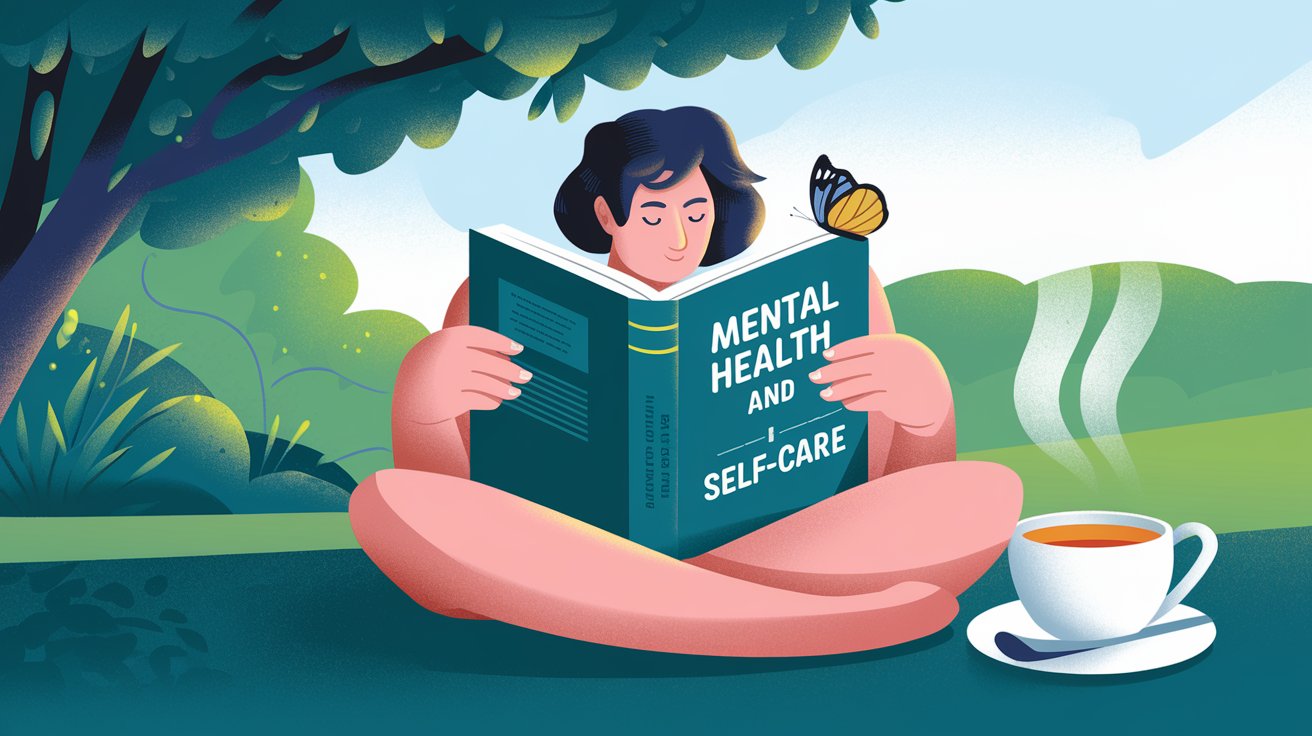Table of Contents
Introduction
Your emotional and psychological health is just as important as your physical well-being. In today’s fast-paced world, stress, anxiety, and burnout have become common issues. But the good news? You can take charge of your well-being by adopting simple, powerful habits. These daily routines can make a huge difference in how you feel, think, and live because mental health matters.
Let’s dive into ten habits that will help you boost your well-being because mental health matters every single day!
Habit #1: Prioritize Quality Sleep
Getting enough sleep isn’t just about feeling rested—it directly impacts your mood, memory, and stress levels. Poor sleep can lead to anxiety, depression, and even physical health problems. Since mental health matters, quality sleep should always be a priority.
Tips for Better Sleep:
- Stick to a consistent sleep schedule
- Avoid screens at least an hour before bed
- Establish a calming nighttime ritual, such as reading or practicing meditation
- Keep your bedroom dark, cool, and quiet
Habit #2: Maintain a Healthy Diet
The food you eat affects your brain just as much as your body. A diet rich in whole foods, lean proteins, and healthy fats can improve focus, mood, and overall well-being. Since mental health matters, fueling your body with the right nutrients is essential.
Best Foods for Mental Health:
- Omega-3 fatty acids (found in salmon, walnuts, and flaxseeds)
- Leafy greens (rich in folate, which helps brain function)
- Dark chocolate (boosts serotonin levels)
- Nuts and seeds (great for brain health)
And don’t forget to stay hydrated—even mild dehydration can lead to mood swings and brain fog. After all, mental health matters, and small daily habits create lasting change.
Habit #3: Mental Health Matters – Stay Active
Exercise isn’t just for physical fitness—it’s a natural mood booster. Since mental health matters, staying active is one of the best ways to support emotional balance. Moving your body releases endorphins, which help reduce stress and increase happiness.
Easy Workouts for Mental Health:
- A 30-minute walk in nature
- Yoga or stretching
- Strength training or bodyweight exercises
- Dancing to your favorite music
By making exercise a part of your routine, you reinforce the idea that mental health matters every day!
Habit #4: Practice Mindfulness and Meditation
Mindfulness is all about staying present in the moment without judgment. It can help reduce stress, anxiety, and even symptoms of depression. Since mental health matters, developing mindfulness habits can create a more balanced and peaceful life.
Simple Ways to Be More Mindful:
- Take a few deep breaths throughout the day
- Focus on your senses (what you see, hear, smell, feel)
- Try a 5-minute guided meditation
Remember, practicing mindfulness regularly is a small yet powerful reminder that mental health matters.
Habit #5: Build Strong Social Connections
Humans are social beings, and having a strong support system is crucial for mental well-being. Connecting with others reinforces that mental health matters, both for you and for those around you.
Ways to Strengthen Your Connections:
- Make time for friends and family
- Join a community or interest group
- Practice active listening in conversations
Spending time with loved ones is one of the best ways to nurture emotional well-being because mental health matters in every interaction.
Habit #6: Limit Screen Time and Social Media
Too much screen time, especially on social media, can lead to stress, anxiety, and low self-esteem. The constant comparison and information overload can be overwhelming. Reducing screen time is essential because mental health matters.
Healthy Digital Habits:
- Set screen time limits
- Take breaks from social media
- Follow uplifting and educational content
Remember, disconnecting from the digital world allows you to focus on what truly matters—your well-being, because mental health matters more than likes and follows.
Habit #7: Develop a Gratitude Practice
Practicing gratitude can train your brain to focus on the positive aspects of life. It shifts your mindset from what’s missing to what you already have. Since mental health matters, fostering a habit of gratitude can significantly improve your outlook.
Gratitude Exercises:
- Keep a daily gratitude journal
- Express appreciation to someone every day
- Reflect on three good things that happened before bed
By practicing gratitude, you reinforce positivity and remind yourself that mental health matters in both big and small moments.
Habit #8: Engage in Hobbies and Creative Activities
Engaging in activities you enjoy is a highly effective way to reduce stress. Whether it’s painting, writing, gardening, or playing an instrument, creative activities help your brain relax and recharge. Since mental health matters, making time for hobbies is essential.
Pursuing creative activities reminds us that mental health matters, and joy can be found in everyday experiences.
Habit #9: Seek Professional Help When Needed
There’s no shame in facing challenges with mental health. If you’re feeling overwhelmed, talking to a therapist or counselor can be life-changing. Seeking support is a powerful step because mental health matters—and you deserve help when you need it.
Signs You Might Need Support:
- Persistent sadness or anxiety
- Difficulty managing daily tasks
- Loss of interest in things you once enjoyed
There’s strength in asking for help because mental health matters. Don’t hesitate to seek the support you need.
Habit #10: Manage Stress Effectively
Stress is inevitable, but your approach to managing it is what truly matters. Learning healthy coping strategies can prevent stress from taking a toll on your well-being. Since mental health matters, managing stress effectively should be a priority.
Stress Management Techniques:
- Deep breathing exercises
- Journaling your thoughts
- Engaging in relaxing activities (like reading or nature walks)
Prioritizing stress relief reinforces that mental health matters, and taking small steps can lead to big improvements.

Conclusion
Looking after your well-being doesn’t have to be overwhelming. By incorporating these simple yet powerful habits into your daily routine, you can boost your emotional and mental health. Mental health matters, and small daily actions lead to big results—so start today!
FAQs
1. What are the best foods for mental health?
Foods rich in omega-3s, leafy greens, nuts, dark chocolate, and whole grains support brain function and mood.
2. How much exercise do I need for better mental well-being?
Just 30 minutes of moderate activity (like walking or yoga) a few times a week can boost your mood and reduce stress.
3. Can mindfulness help with anxiety?
Yes! Mindfulness can help you stay present and reduce anxious thoughts by focusing on the now instead of worrying about the future.
4. What are the early signs of mental health issues?
Persistent sadness, irritability, lack of motivation, sleep disturbances, and withdrawal from social activities can be warning signs.
5. How can I find the right therapist?
Look for licensed professionals, read reviews, ask for referrals, and don’t be afraid to try a few sessions to see if they’re the right fit.
We’d love to hear your thoughts and suggestions! Feel free to leave a comment below or reach out to us directly at Contact Us. Your feedback helps us improve and create content that matters to you!

